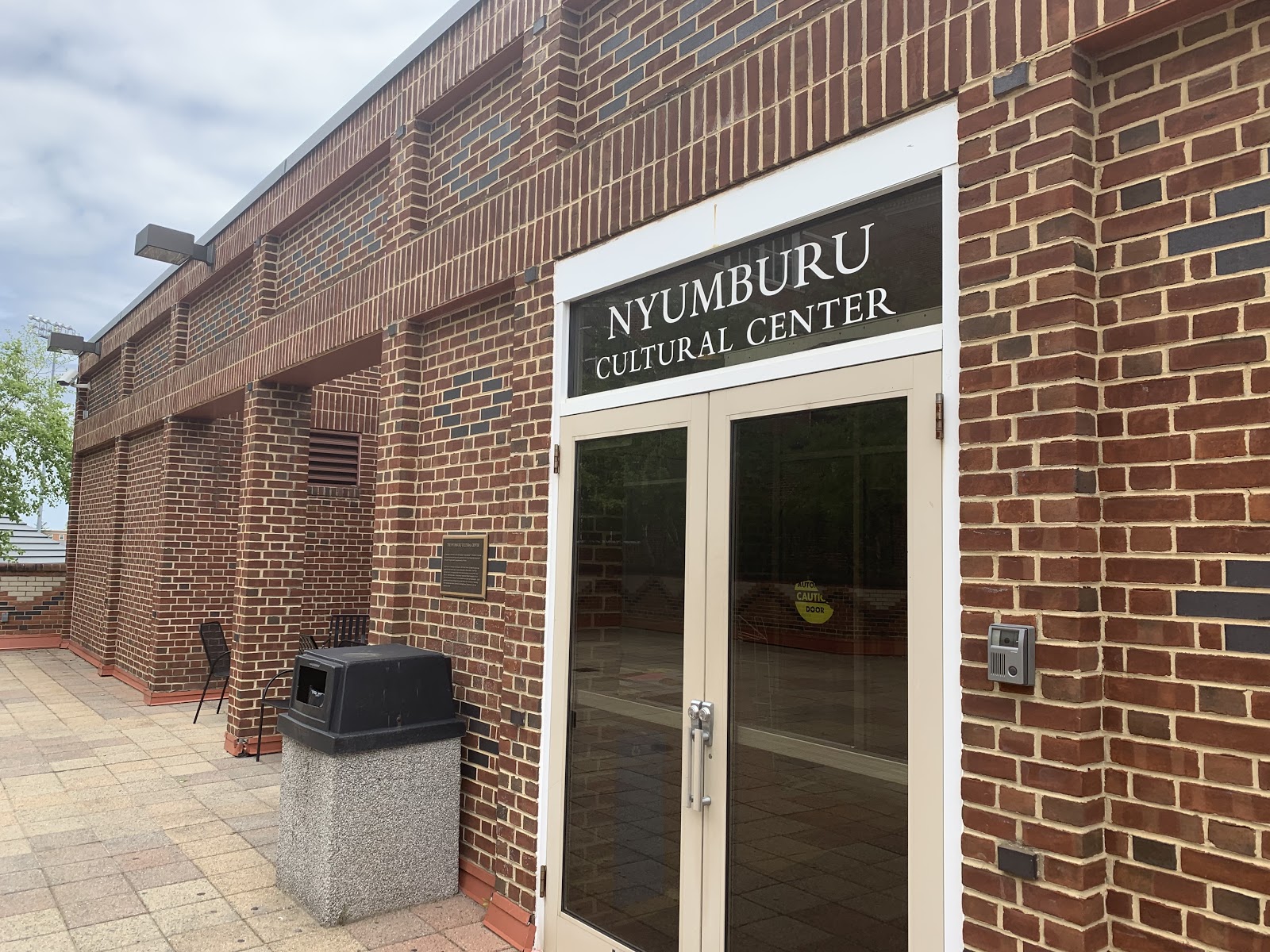While Black enrollment is down at UMD, Black Male Initiative strives to empower students
The Black Male Initiative strives to give Black males on campus relatable mentors to look up to as they navigate through college. It was started in the Nyumburu Cultural Center. (Megan Sayles/The Black Explosion)
When Black male students attended classes at University of Maryland in the early 2000s, they realized that very few of their professors were Black. As a result, the Black Male Initiative was born in the Nyumburu Cultural Center.
The individuals felt that Black males on campus needed mentors who looked like them and could relate to them, according to Solomon Comissiong, assistant director of student involvement and public relations at Nyumburu. The organization was created in 2005 by two faculty members and former students.
Comissiong said BMI meets monthly to discuss a variety of issues affecting the Black community, like racial profiling and police brutality. He listed a number of individuals from the Black UMD community who had been affected by police brutality and found it disheartening.
Whether the racial profiling has taken place on campus or in other places, some have had really bad experiences, Commisong said. BMI allows them to discuss these experiences in a safe space.
Dr. Ronald Zeigler, director of Nyumburu Cultural Center, said BMI encompasses the academic and social aspects of college life. In addition to discussion of important topics affecting the Black community, the group holds movie nights where they watch films of relevance, ranging from popular culture to health films.
Zeigler said they try to make sure their activities are inspiring, and they try to push students further in their excellence.
“It’s important that we try to develop this support network for Black males in a predominantly white campus,” Zeigler said.
The organization also participates in community outreach. Comissiong said students have visited elementary and middle schools, and they work with young males who do not have male role models in their home. They have visited juvenile detention centers and worked with the incarcerated on scholarship, critical thinking and black history, Comissiong said.
“If you get locked up, all you’re doing is helping someone who doesn’t care about you,” Comissiong said.
The leadership skills that the incarcerated use ‘on the block’ could be re-directed and used when they are released, Comissiong said.
Comissiong said although the university extols the program, it has never given BMI any money to be used for their agenda.
The organization has been on a “shoestring budget,” Comissiong said, having to “pinch pennies” when trying to provide food at meetings and transportation to outreach events.
Zeigler said the organization is even more critical now at the university because there has been a decline in enrollment for African American students and faculty. According to an enrollment profile from the university’s Office of Institutional Research, Planning and Assessment, the enrollment for Black freshmen fell from 554 in 2016 to 334 in 2018.
Trey Huff, a senior biochemistry major, said BMI has been helpful to students who are in danger of dropping out. Huff said dropping out may not be the result of failing classes, but financial issues, and it’s not always easy for students to ask for help.
Huff himself had been in danger of dropping out, but his mentors from the group continuously reached out to him and helped him with finding resources to solve his financial problems.
Both Comissiong and Zeigler said they want more students to take part in BMI. Although the group has grown considerably since it began, Commisong said there are still far too many Black students that are not in it. He said college students need to balance their social and academic lives better, and that they have a duty to their community.
“You have to engage with things that are important to you substantively,” Comissiong said.

